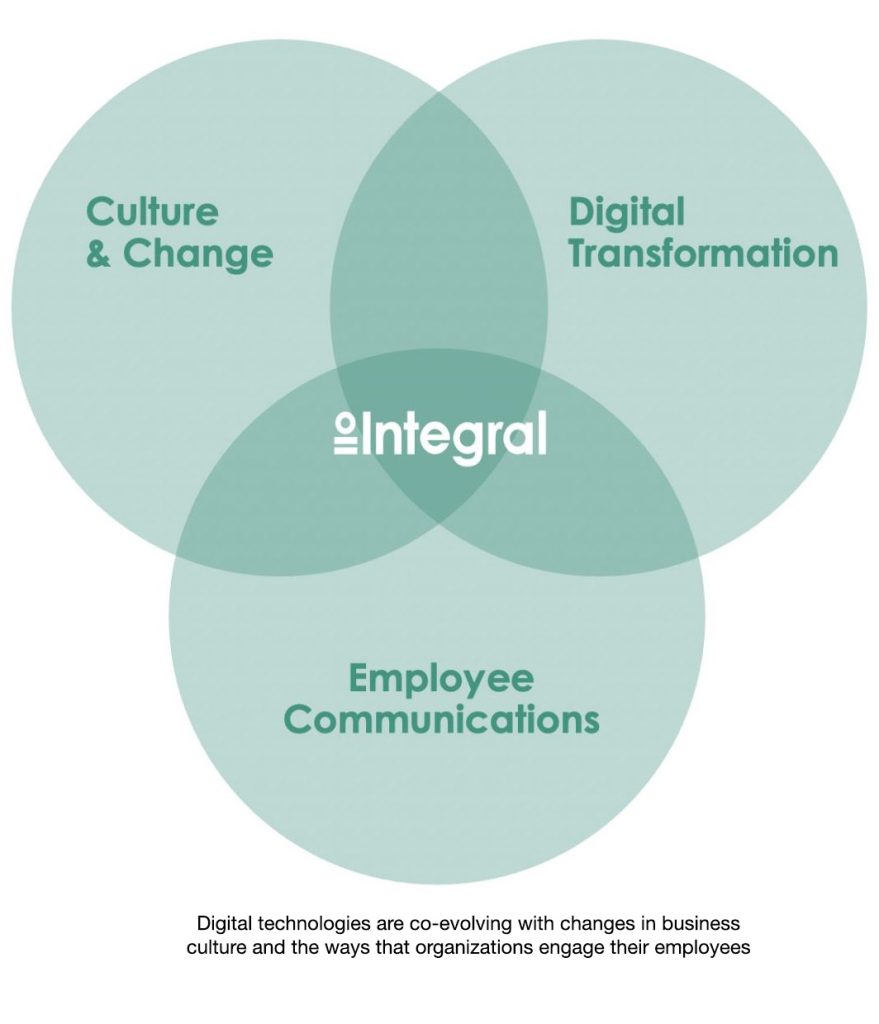Including and informing employees is the key
If your experience is anything like ours, you’ve heard some pretty different projects described as “digital transformations” — and you’ve also seen very different results. But why? What makes one digital transformation work and another fail?
Here’s an answer from leading technology consulting firm Gartner: “The transformation journey is taking large enterprises especially at least twice as long and costing twice as much as they originally anticipated. In large part this is due to cultural readiness.” (emphasis added)
So large-scale technical projects are failing because of… culture? Yes: It turns out that the humans on the receiving end of transformation can make all the difference in its success. To understand why, we did a deep dive on employee attitudes about digital transformation in this year’s Employee Activation Index – our annual survey of US employees, conducted with The Harris Poll.
Do employees hate change? Actually, no.
Most employees who say their organizations are going through a digital transformation are positive about it, believing it will help the company and also help them to do their jobs. 68% believe their colleagues were or are ready for digital transformation, and 63% say that it has been or will be easy for the organization. They also strongly believe the transformation will help their company succeed (80%) and will help them do their own jobs more effectively (75%).*
But dig deeper, and there’s a lot more nuance:
- 38% of employees who report going through a digital transformation are concerned that it may put their jobs at risk. Surprisingly, managers are more than twice as likely as non-managers to express this concern (44% vs. 16%).*
- Employees who report going through a transformation are more likely to predict their colleagues will engage in positive actions (e.g., they are 14% more likely to stay with the organization through challenging times and 22% more likely to mentor someone) – but they are also more likely to predict negative actions! They are 21% more likely to say that colleagues would warn a candidate that the organization is a bad place to work, and 20% more likely to say that colleagues would sabotage the organization.*
- This suggests polarization of opinion among those who are experiencing digital transformation: those who are positive about it predict positive behaviors, while those who dislike it predict negative behaviors.
Who knows there’s a digital transformation?
Maybe even more surprising is the number of employees who don’t know whether their organizations are going through a digital transformation or not. 13% of respondents explicitly say they don’t know – but the differing responses of managers and non-managers suggest the number is much larger. A majority of managers (64%) say their organizations are undergoing digital transformation, while a majority of non-managers (55%) say their organizations are not. An obvious inference is that managers are much more likely to know when a digital transformation is taking place.
This is the core of the culture problem with transformation projects (digital or otherwise): when employees feel uninformed, or believe that change is being imposed on them, they react negatively. This can take multiple forms:
- Employees don’t buy into the change, so they ignore it or passively resist it.
- Employees believe the change has an unspoken purpose that may be bad for them.
- Employees may think the fact that the transformation hasn’t been explained to them is a sign of disrespect: “the company doesn’t care if I like this or not.”
- Even employees who are open to the change may not understand it, and will therefore – perhaps unintentionally — behave in ways management did not intend.
Our experience supports these findings
In the workplace, digital transformation is co-evolving with changes in business culture, employee expectations, and the ways that organizations engage their employees. Integral’s core skill is helping organizations navigate the intersection of these changes. And, we’ve seen what can happen when transformation projects don’t pay enough attention to culture and communications:
- Organizations don’t include employees in the process of developing requirements for a new system and thereby miss potential benefits – or worse, buy a solution that’s appealing to procurement teams but not to users.
- Businesses implementing state of the art systems “train people on the tool” instead of explaining how the new system will make their jobs easier – and empower them to do things they couldn’t do before.
- Employees don’t realize that changes in different parts of the organization are part of a coordinated strategy and therefore perceive them as chaotic.

The solution: Include employees before, during, and after
Organizations undergoing or contemplating digital transformation should develop programs to help employees understand what the transformation is, why it’s happening, and – critically – how it benefits them and their careers. The ideal approach is more than just explaining the transformation to employees – it’s including them in the process. Here are some techniques that have worked for us:
- Conduct interviews or workshops with both executives and users to capture input and ensure a shared vision.
- Create a “sponsor user” program to incorporate user input during the design process.
- Facilitate employee understanding and buy-in with a transformation narrative delivered through multiple channels as part of an ongoing employee communications programs in support of the transformation.
- Partner with the technology vendors implementing the system to ensure company-wide understanding of the program’s goals and benefits.
- Don’t “launch and leave”: Gather user feedback on an ongoing basis to improve communications and inform future releases of the system.
Getting culture right for a transformation project comes down to instilling a sense of belonging: I’m part of this transformation, I’m helping to make it happen, and I believe in it. And ideally, the way employees are engaged in a transformation project is just one example of the way their organization instills that sense of belonging.
Want to learn more?
* Numbers represent those who said they strongly agreed or somewhat agreed with each statement.
Download the 2022 Integral Employee Activation Index, follow us on LinkedIn and join our newsletter mailing list.
